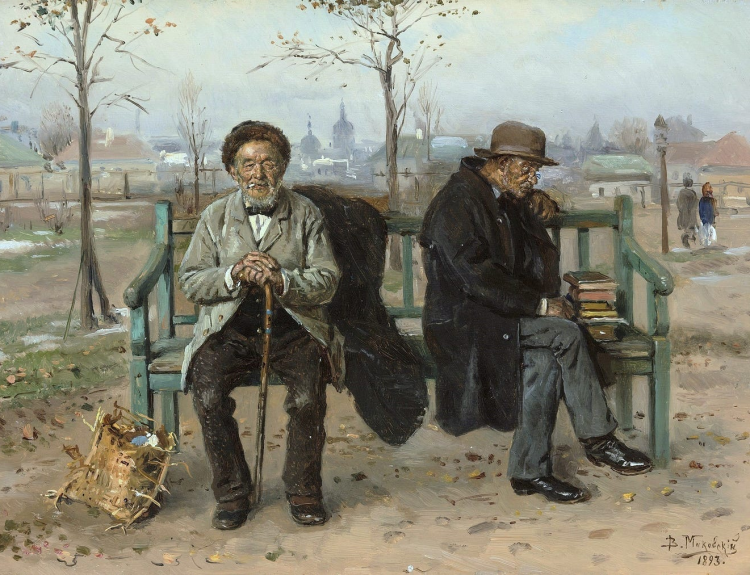Empaths don’t just feel emotions — they absorb them. Walk into a crowded room and they can instantly sense who’s hurting, who’s angry, who’s pretending. It’s not magic. It’s sensitivity. And it shapes every part of their lives — how they love, how they work, how they break down and rebuild.
But this gift comes with a price. Being an empath in a noisy, numb, overstimulated world isn’t easy. It’s like walking through life with your skin turned inside out. Which is why empaths move differently — in silence, in protection, and with a kind of invisible awareness that others often miss.
If you’ve ever felt like your emotions weren’t always yours… or that a crowded room made you feel like drowning… or that you needed three days to recover after one intense conversation… you might be an empath. And these are the 10 things you likely do very differently from everyone else — not because you’re broken, but because you’re built to feel deeper than most will ever understand.
1. They Absorb Moods Like Sponges
Empaths don’t just notice someone’s mood — they become it. If a friend is anxious, they’ll feel the tight chest. If a coworker is angry, their own body tenses up. They often can’t explain why they suddenly feel off — until they realize they’ve been sitting next to someone emotionally chaotic all day.

In a 2022 neuroscience study, researchers found that empaths have hyperactive mirror neuron systems, which means their brains are literally wired to experience what others feel.
“Being an empath isn’t about being soft — it’s about carrying emotions you didn’t ask for.” pic.twitter.com/emotionalempath— Emotional Empath (@emotionalempath) July 11, 2025
2. They Need More Recovery Time Than Most
After a party, a meeting, or even just a stressful phone call, empaths often feel like they’ve run a marathon. That’s because their nervous systems are in overdrive. They’re not just processing their own reactions — they’re unconsciously sorting through everyone else’s energy too.
This is why empaths tend to cancel plans last minute, disappear for days, or need more sleep. It’s not avoidance. It’s survival. As therapist @sitwithwhit puts it: “Empaths don’t burn out from doing too much. They burn out from feeling too much.”
3. They Can Spot Hidden Pain Instantly
Someone might be smiling, saying they’re fine — but an empath will sense the crack in their voice, the shift in energy, the shadow behind their eyes. They often know something’s wrong before the person does.
In fact, many empaths grow up thinking they’re “too sensitive” or paranoid, when in reality, they’re just emotionally intuitive. Dr. Judith Orloff calls this “emotional radar” — and says it’s both a gift and a curse.
4. They Struggle to Set Boundaries — But Need Them Desperately
Empaths often say “yes” when they mean “no.” Not because they’re weak, but because they physically feel the disappointment or frustration of the person they’re turning down. That guilt isn’t just imagined — it’s somatic. Their body literally aches when others are upset.
But over time, this leads to burnout, resentment, and self-abandonment. That’s why many empaths eventually have to learn the art of saying “no” — not out of rejection, but as self-rescue. As shared in this TikTok by @nedratawwab: “Boundaries aren’t walls. They’re doors — with locks you control.”

5. They Experience Music, Art, and Nature More Deeply
A song can send them into tears. A sunset can feel like a spiritual awakening. An old movie scene can stay with them for days. Empaths don’t just witness beauty — they merge with it. Their sensory depth makes life feel more vivid — but also more overwhelming.
In a Scientific American piece, researchers found that empaths have higher activity in the insula — the brain region linked to emotional awareness.
6. They Avoid Crowds and Prefer One-on-Ones
Concerts, malls, even family reunions — they all feel like emotional landmines. Too many voices, too many energies, too much static. That’s why empaths tend to prefer deep conversations with one or two people over large group settings.
Some even report physical symptoms in crowds — nausea, fatigue, irritability. As shared in this tweet by @highlysensitive: “Being in a crowd as an empath is like having 100 tabs open in your brain — all playing music at once.”
“Empaths don’t hate people — they just can’t handle everyone’s energy at once.” pic.twitter.com/empathcrowds— Empaths United (@empathsunited) July 11, 2025
7. They’re Often Misdiagnosed With Anxiety or Depression
Because empaths absorb pain that isn’t theirs, many report symptoms of mental illness that don’t have a clear source. They’ll say “I don’t know why I’m sad,” or “I feel anxious for no reason.” But the reason might be energetic, not chemical.
That’s why more therapists are now screening for empathic traits before prescribing meds. Dr. Elaine Aron, founder of the Highly Sensitive Person movement, has said: “A third of people diagnosed with anxiety are simply unshielded empaths.”
8. They Often Attract Broken People
Empaths are healers by nature. Their calm presence, deep listening, and non-judgmental energy are magnets for people in pain. Unfortunately, this also makes them targets for narcissists, manipulators, and energy drainers.

Many empaths fall into cycles of “fixing” — believing they can love someone into healing. But healing has to be chosen, not forced. That’s why empaths must learn to discern between someone who’s wounded — and someone who’s wounding them.
9. They See Through Masks Instantly
People can lie with words, gestures, even smiles. But not with energy. Empaths feel when something is “off,” even when everything seems fine on the surface. That’s why many struggle in traditional workplaces — the small talk, fake positivity, or hidden resentment feels suffocating.
One empath on Reddit said: “I knew my boss was going to quit weeks before she said anything. Her energy had already left the room.” That’s the empath advantage — they sense what’s unspoken.
10. They Heal in Solitude, Not Noise
Silence is sacred to empaths. After emotional overload, they retreat — into nature, music, journaling, or simply stillness. Not because they’re antisocial. Because it’s how they reset their emotional frequency.
In fact, many empaths say their most profound moments of clarity come when they’re alone. As one viral tweet from @wordsfromsolitude said: “Solitude isn’t loneliness. It’s where I return to myself after the world has borrowed too much of me.”
“Empaths need rest the way others need air. Stillness isn’t optional — it’s survival.” pic.twitter.com/empathrecharge— Rest For The Soul (@restforthesoul) July 11, 2025
What Real Empaths Say About Living in a Loud World
On TikTok, creator @empathinsight went viral for sharing how she once quit her job at a bustling NYC marketing firm — not because she couldn’t handle the work, but because “absorbing the energy of 60 coworkers every day left me sobbing in the bathroom by 3pm.”
Another Reddit user wrote: “I used to think something was wrong with me. I’d cry after coffee dates and couldn’t explain it. Then I realized I wasn’t sad — I was carrying the sadness of people too afraid to say they were struggling.”
5 Grounding Tips Every Empath Should Practice
- Start your day in silence — Even five minutes without music, screens, or voices can create a protective buffer before you face the world.
- Visualize a shield — Imagine a soft white light around your body before entering crowded or chaotic environments.
- Salt baths and water rituals — Empaths often feel rebalanced near water. A salt bath can clear energetic residue like nothing else.
- Daily emotional check-ins — Ask yourself: “Is this feeling mine?” You’d be surprised how often it isn’t.
- Practice energetic detachment — You can care deeply without carrying pain. Meditation apps like Insight Timer or Calm now offer specific tracks for empaths.
“Empathy is not about absorbing. It’s about witnessing with compassion — without losing yourself.” pic.twitter.com/empathbalance— Empath Wisdom (@empathwisdom) July 11, 2025
In a World That Overstimulates, the Empath Quietly Sees All
They sense what’s hidden. They hold what’s heavy. And often, they heal silently. If you’ve ever felt like you were made to feel too much — maybe that wasn’t a flaw. Maybe it was the superpower the world tried to dim. Empaths don’t need fixing. They need space to breathe, feel, and shine exactly as they are.








